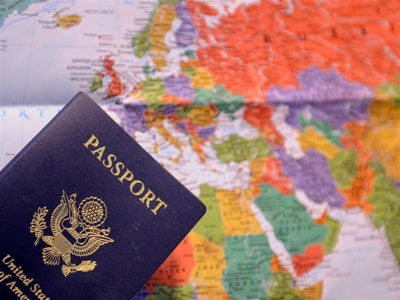President Trump’s issuance Monday of a revised executive order placing tight restrictions on the entry into the United States of some foreigners received a guarded reception from higher education leaders and frontline college and university officials involved in international higher education efforts.

“While the revised executive order is more limited in scope, the impact is significant,” says Peter McPherson, president of the Association of Public and Land-grant Universities (APLU), which consists of 250 of the nation’s largest public research institutions. “The pipeline of new students and scholars from those countries — many of whom are in the midst of the college application process — is now cut off.
“Public research universities are also concerned that the new order could have a chilling effect on students and scholars in other countries who are considering whether to study and conduct research in the United States or elsewhere.”
McPherson says Trump’s new order “undermines” the ability of America’s universities to “thrive,” something he attributes to their freedom to connect throughout the world. During the 2015-16 school year, he notes, more than 15,000 students and more than 2,100 scholars from the six countries covered by Monday’s order studied and conducted research at American universities.
The six countries affected by Monday’s order are Iran, Somalia, Sudan, Yemen, Syria, and Libya. Citizens from those countries will face a 90-day ban on travel to the United States starting March 16. It does not revoke existing visas approved before March 16 nor does it specifically state what, if any, new rules apply to current lawful permanent residents and holders of green cards.
Monday’s announcement by the White House and the U.S. attorney general, on behalf of Trump, also says visas revoked when the original travel ban was issued by Trump have been fully restored, according to NBC News.
McPherson’s expressions of concern about the impact of Trump’s actions on the ability of foreign students and scholars to study and work in the United States was echoed from a different perspective, regarding American students and scholars being able to study abroad.
“Some of our students will choose not to go” abroad this summer to study, says Dr. Margery Ganz, director of study abroad and international exchange at Atlanta’s Spelman College. Ganz says she would not be surprised if study abroad fell this year as it did last year, when violence in several foreign capitals elevated concerns about safety abroad.
Ganz, as did several other frontline officials, says she has not had time to thoroughly review the new Trump order to fully determine what impact it might have on Spelman.
Sanford Ungar, former president of Goucher College, says he, too, has not had time to carefully review Trump’s new order. Absent the details, he says, the overall new order still keeps people out of America who can contribute to it and the tone of the order is negative.
“The worst thing is it’s still saying we’re better” than people in other countries,” says Ungar, now a scholar in residence at Georgetown University and a Lumina Foundation Fellow.
McPherson seemed to make the same point in his comment on Trump’s new order, noting that all six of the 2016 U.S.-based Nobel Prize winners in economics and scientific fields were foreign born.


















